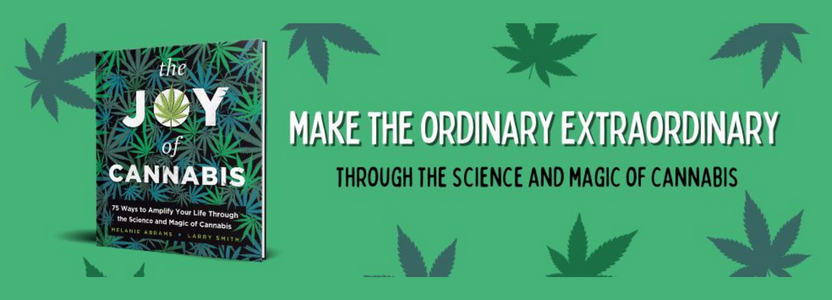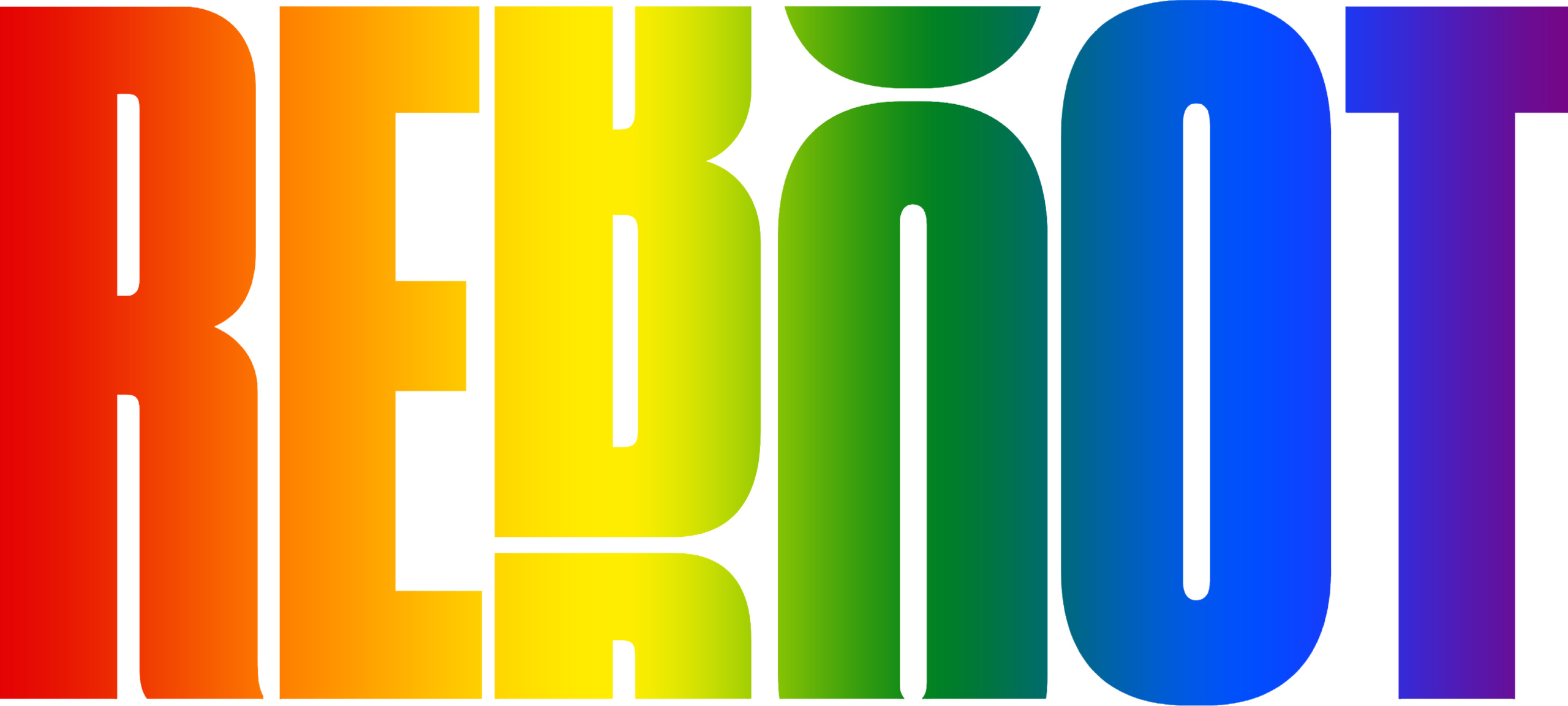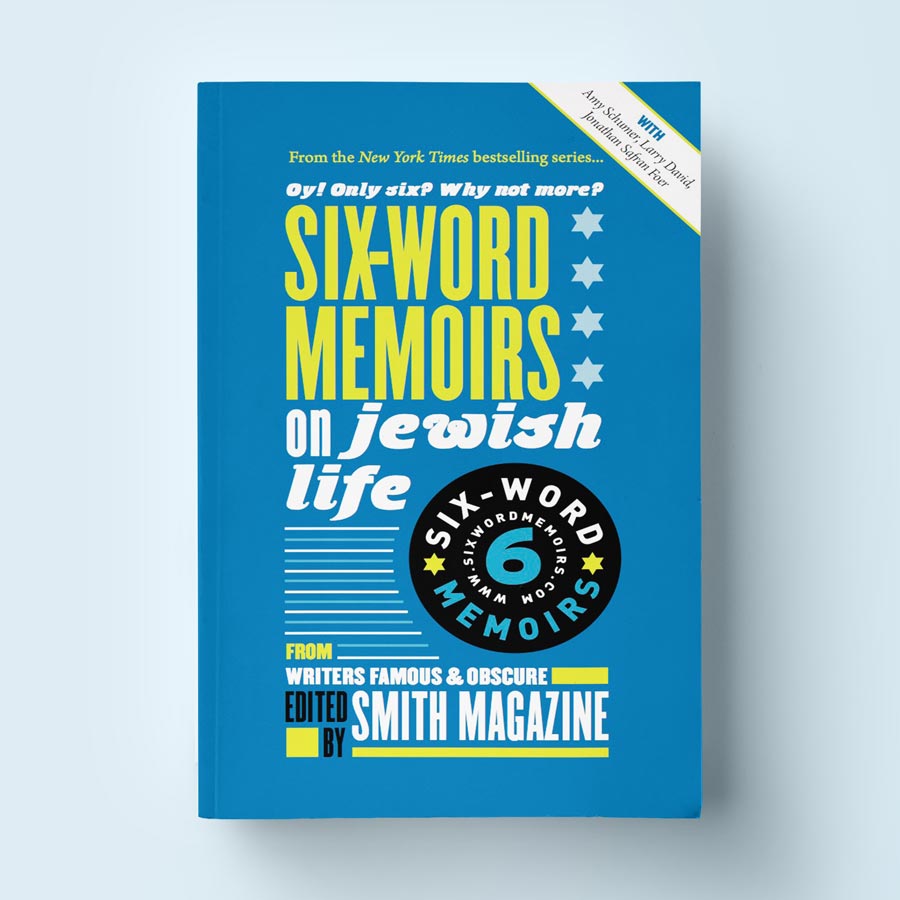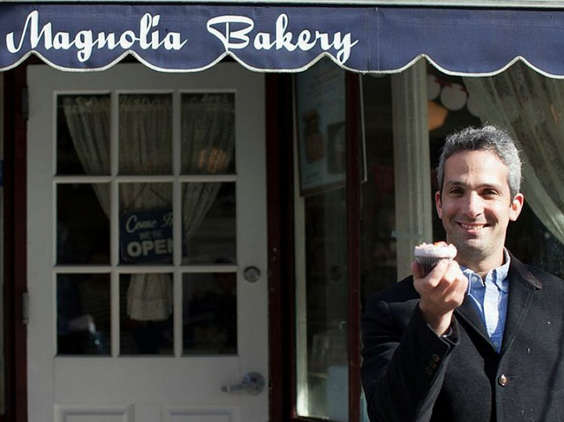Cannabis and the Jews: A Love Story

Reboot Network member Larry Smith, is the founder of The Six-Word Memoir Project and writer, with Melanie Abrams, of The Joy of Cannabis: 75 Ways to Amplify Your Life Through the Science & Magic of Cannabis. He writes here about their journey to this book and the deep Jewish connection to cannabis. Buy the book here and find out more at joyofcannabis.org.
Cannabis and the Jews: A Love Story
Two Jews meet at a Christmas party. One of the Jews says to a group chatting in the kitchen, “Does anyone want to go out to the deck and get high?” Surprisingly, especially as this scene takes place in the Bay Area, only one person says yes. That person was me. But what developed on the deck with Melanie Abrams that night ended up being much more than just a shared high.
That night, we talked about the Beatles, about writing, about what it was like for me to move back to the Bay Area after being gone for twenty years, and more. And one of the reasons that conversation flowed so easily was because cannabis decreases inhibitions and boosts connections, so a first conversation with a stranger can feel like one you’ve been having with someone you’ve known for years. We soon realized we loved cannabis for the same reasons: along with boosting connection, this magical flower helps unlock creativity, increases focus, and helps you be gloriously in the moment.
We are both writers and so it made sense to turn that conversation into a collaboration. And thus a book was born. We started working on The Joy of Cannabis: 75 Ways to Amplify Your Life Through the Science and Magic of Cannabis and soon, friends, friends of friends, and parents of friends began flooding us with questions: Can cannabis help with my anxiety? Pain? Sleep? Will it help reconnect me with my partner, my parents, my long lost friend? Do people really get more focused and productive with edibles? What’s the best way to use cannabis? How do I navigate that fancy Apple-looking store they call a cannabis dispensary?
We got so many questions, but the people who seemed hungriest for information were those dealing with aging parents and their ailments. In other words: old Jews. And by that, I mean my parents. I was raised by classically liberal Jews: they voted democratic, took us to see Eddie Murphy at ages that most of the free world would deem inappropriate and celebrated Shabbat with pizza so no one had to cook at the end of the week. That said, my folks were not exactly doing bong hits in the living room. “I think we got high once on New Year’s with dads’ chiropractor friend, Harry Walter,” my mom recalls. Times have changed. Now, when I return to my childhood home in South Jersey, I bring one type of edible to help with my dad’s nausea from chemo and another for my mom who, like me, uses cannabis as a sleep aid. Welcome to my childhood home circa year 5783.
It turns out Jews and cannabis are old friends. Reboot Faculty member Eddy Portnoy, academic advisor and director of exhibitions at the YIVO Institute for Jewish Research, has made a study of our long relationship with cannabis (Learn more in an interview with him on a Different Leaf podcast) and recently curated the YIVO Institute for Jewish Research exhibit “Am Yisrael High: The Story of Jews and Cannabis” (menorah bong next Hanukkah, anyone?). He joins a long history of Jews investigating cannabis. In fact, the most mind blowing thing we learned while researching the book was discovered by Raphael Mechoulam and his team at the Hebrew University of Jerusalem.
In 1964, Mechoulam became the first scientist to isolate THC. Then in 1988, two scientists working with Mechoulam to understand how THC affects the brain discovered that there are receptors in our brain that are not only activated by cannabinoids (like THC), but are also activated by naturally occurring cannabinoids called endocannabinoids (“endo” meaning “within,” as in within the body), which means that our bodies are producing cannabis like compounds right at this very moment. So get this: right now, within our bodies, exists a molecular system that works so perfectly with the chemical makeup of cannabis that it was named after cannabis.
Another reason this discovery is so exciting is that if endocannabinoids work to keep our bodies healthy (one thing the endocannabinoid system does is keep our bodies in a state of homeostasis – keeping blood sugar and body temperature regulated, for example), it stands to reason that plant cannabinoids can do the same. Researchers are working on figuring out how plant cannabinoids (CBD, CBN, and the hundred others) can help keep bodies healthy just like naturally occurring endocannabinoids do – a major breakthrough for medicine. And that is good for the Jews (and everyone else, too).
Because cannabis and Jews are such old friends, Melanie and I knew we wanted to include something about this relationship in the book. For a primer about about cannabis’ place in our Jewish history, I turned to Rabbi Amichai Lau-Lavie, a Reboot faculty member and founding spiritual leader of Lab/Shul NYC and the creator of Storahtelling, Inc., Storahtelling, a nonprofit organization devoted to making ancient stories and traditions accessible for new generations. This excerpt appears in the book.
“High for the Holidays: a conversation with Rabbi Amichai Lau-Lavie”
Do religion and reefer go together? Hell, yes. We’re not talking about ditching Hebrew school or sneaking out during the pastor’s sermon to light up with your friends. That’s kid stuff. But for adults looking to rekindle or strengthen their connection to their faith, the right strain of flower can be a godsend.
Cannabis is, after all, an entheogen—a plant-based substance that produces changes in cognition and consciousness for religious or spiritual purpose. And like so much in the book of cannabis, this ancient herb’s place in religion goes way back. In the Torah, there are several mentions of a substance called kaneh bosem, aka cannabis, referred to as among the ritual offerings Moses is instructed to give God.
“Cannabis was part of the ancient Hebrew ‘spice set’ among the other types of incense and herbs in the tabernacle,” said Lau-Lavie. “Our ancestors understood that to move from doing business, reading the news, or talking to your kid to a more spiritual mindset, we need to turn off the more linear part of our brain and turn on other nonlinear parts.” There are different ways to do this. Meditation and dancing are one; using THC is another.
Lau-Lavie recalls being at a Jewish retreat back when he was a budding young scholar. Toward the end of the retreat, one of the leaders (a well-known and respected rabbi) invited the group out for a spliff. Lau-Lavie was delighted and took the opportunity to ask the rabbi where Jewish law stood on getting high. “The rabbi said something to me that I never forgot, something instructive in so many parts of life, not just the high life,” Lau-Lavie recalls. “He told me that when it comes to cannabis, you need to know who’s the master and who’s the servant. Use it if you can handle it and feel good. If it takes over your life, it just won’t work for you.”
It works for Lau-Lavie, who believes in the power of cannabis to harness the divine. “I’ve had some very powerful and important spiritual awakenings on weed,” he says. “I’m grateful for when I said yes and grateful when I needed to say no.”
It was because I said yes that night to Melanie when she asked if there was anyone who wanted to join her to get high. That one yes, let me to an exploration that has changed my life and I hope will help others change theirs.




